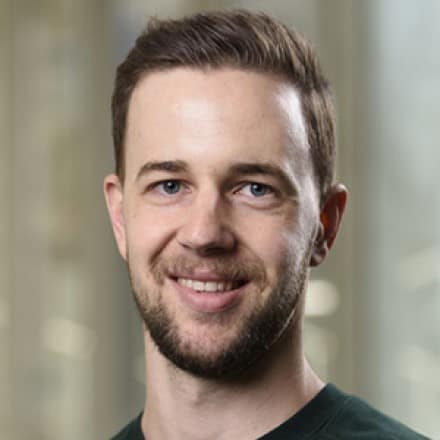Cancer has many pernicious characteristics. At its inception, most cancers start to build a fort where they operate from by recruiting unsuspecting construction workers (fibroblast cells) and security agents (macrophage cells). In non-cancerous settings, construction workers and security agents are responsible for repairing wounds and preventing foreign intruders (e.g. bacteria/viruses) from causing damage. This misappropriation of resources provides cancers with a safe-haven, protecting them from outside forces, such as the immune system or drugs, which usually find the cancer and take it down. Therefore, Dr. Kuhn’s project aims to identify early construction activity of these forts and to find emerging weaknesses. This will allow the field to design novel strategies to destroy the forts, attack the cancer, and make new and existing therapies more efficient.
By flying the biomedical equivalent of a radar-equipped airplane over the cancer forts, Dr. Kuhn will gather information on the operations within. This will provide a never-before-seen peek behind the curtain and provide information on construction materials used, coordination of construction operations, hierarchy within the fort organization, and security equipment. This trove of information will be used to draw comparisons and differences between the construction of the cancer fort and the regular construction of a healthy organ. Ultimately, it will help to identify cancer-specific attack points. The next steps are then to devise strategies to disrupt and destroy the fort, opening up access to cancer cells. The outlined strategy will help to optimize and personalize more sophisticated cancer treatments resulting in better treatment outcomes for larger patient cohorts.
Projects and Grants
Time- and space-resolved macrophage/fibroblast crosstalk during tissue homeostasis and cancer
University of California, San Francisco | All Cancers | 2022 | Matthew Krummel, Ph.D.
